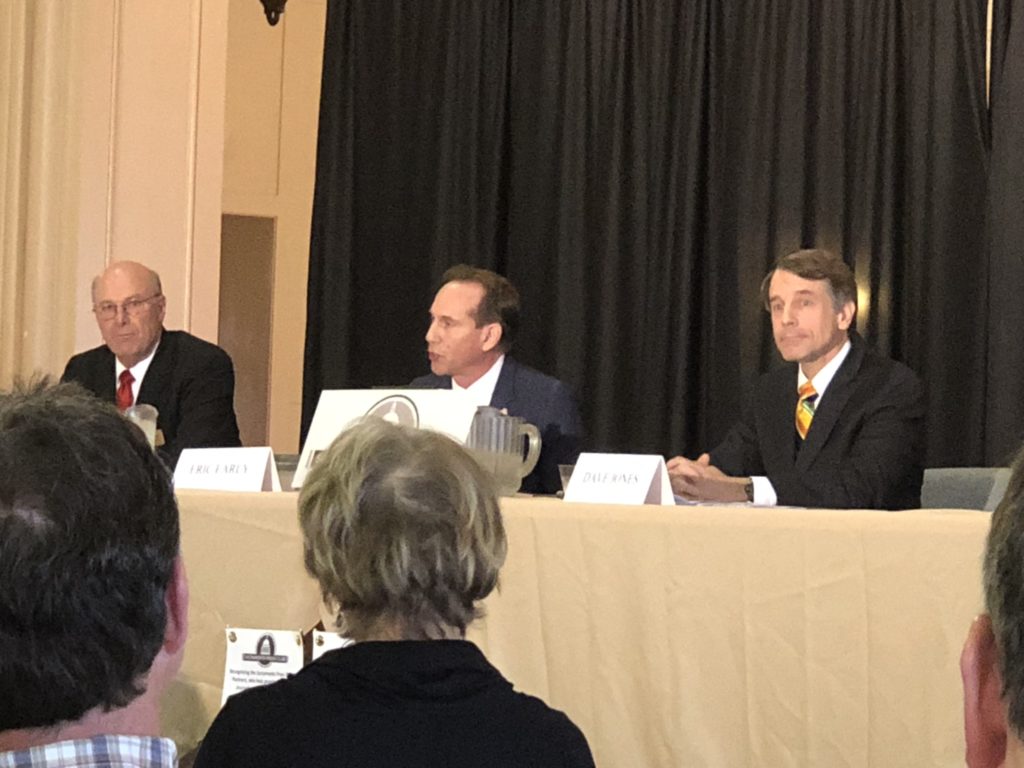
Last week, I had the opportunity to attend a debate of the Democrat and Republican candidates for California Attorney General, which was sponsored by the Sacramento Press Club.
The Republican and Democratic candidates could not present a starker contrast.
The Republican candidates – Southern California attorney Eric Early and retired judge Steven Bailey – both presented themselves well as law-and-order candidates focused on protecting law-abiding citizens from dangerous criminals. Each also said that they would refrain from using the Attorney General’s office as a political platform, criticizing the incumbent Xavier Becerra for using litigation to sue the Trump Administration every time Blue California disagreed with something from Washington.
But the contrast between the two Democrat candidates was downright fascinating.
State Insurance Commissioner Dave Jones is challenging Becerra from the left. A casual observer might find this audacious, since Becerra has had a starring role in the Trump resistance in California.
Listening to his presentation, Jones comes across as more of an ambitious politician without a next office to run for, rather than a principled critic of Becerra. This was evidenced by his answer on the death penalty, in which he tried to have his cake and eat it too by announcing his opposition to it, then saying he would carry out the law if elected. Expect to see that flip-flop on a television near you soon.
Interestingly, Jones challenged Becerra on something that legislative Republicans have been talking about for years. Back in the time when Kamala Harris was Attorney General, it was found that the Attorney General’s office and the counties were not doing a sufficient job entering dangerously mentally ill individuals into the Armed Prohibited Persons database, which is used during gun background checks to stop those who are prohibited from buying a gun from purchasing one.
Back in 2013, Assembly Republicans, led by then-Assembly Members Katcho Achadjian and Allan Mansoor, successfully requested a state audit on the issue. It found that at least 2,300 prohibited persons were not reported in the database between 2010 and 2012.
At the time, Achadjian and Mansoor said that the Auditor’s report, “confirmed our worst fears – that information about individuals who should be on the list of armed prohibited persons is not being fully reported and is not being reported immediately as required by law.”
Despite getting additional funding, subsequent updates from the State Auditor in 2015 and 2017 have found little improvement. Not much has improved with Becerra as AG either. The issue has taken a renewed focus in the aftermath of the Parkland school shooting in Florida and other recent mass shootings.
Jones, Early, and Bailey also made hay over the fact that Becerra didn’t bother to show up for the debate. There was even an empty chair on the platform to signify Becerra’s absence. It was probably a politically smart move, as he had nothing really to gain from showing up and much to lose.
Whoever is elected Attorney General this year will have a significant opportunity to shape policy in California through litigation. Unfortunately, it’s perhaps the most important race on the ballot this year that Californians are not following.
Tim Anaya is communications director for the Pacific Research Institute.
